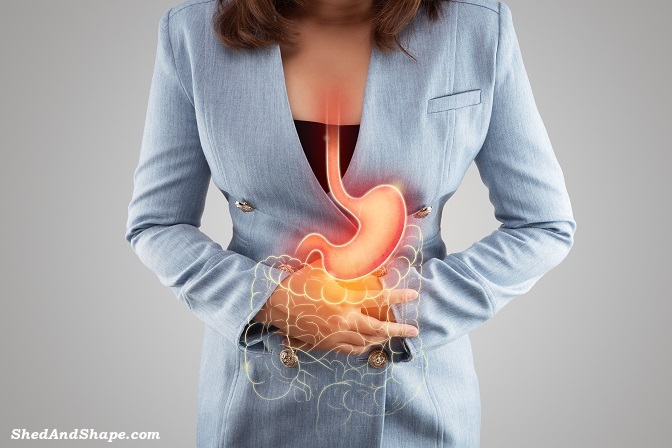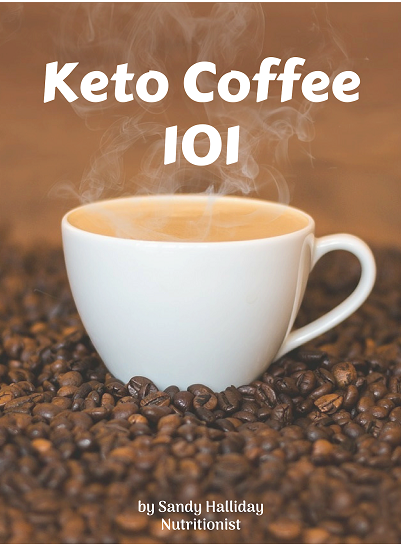Is the low carb diet for GERD effective? This is a question I have seen being asked recently in some of the online health groups. GERD, which stands for Gastroesophageal Reflux Disease, is a common digestive disorder affecting millions worldwide.
Research estimates that about 20% of people in the United States suffer with the condition.Some of the most common symptoms of GERD are problems swallowing, heartburn, sore throat or constantly having to clear your throat, regurgitation, nausea and more.
These symptoms are worrying and depressing, which is why some people with GERD have been seeking different treatment methods, including following a low carb diet. But is the low carb diet for GERD an effective solution? Let’s find out.
What is GERD?
There is controversy over the exact cause. The orthodox medical view is that Gastroesophageal Reflux Disease is a condition that causes the acid-containing contents in your stomach to constantly leak up or reflux into your esophagus. This is the tube connecting your throat to your stomach.
The Naturopathic or Functional Medicine view is that the symptoms are caused by a low level of acid in the stomach. This results in bacterial fermentation which causes the reflux and symptoms.
Causes of reflux
Acid reflux happens because the valve between the end of your esophagus and upper stomach will not close properly once the food gets into your stomach. Acid backwash will flow back through the esophagus and into your throat and mouth, which gives you a sour taste.
Even if you have low stomach acid the reflux can cause burning. The reason for this is that the esophagus does not have the same mucus layer protection that the stomach has. Any amount of acid in contact with the delicate lining will cause the burning sensation.
GERD can also be caused by a hiatal hernia. This is where the upper part of the stomach is pushed through the diaphragm. This is the muscle that separates the chest from the abdomen.
Acid reflux can happen to us at some point in our lives. While you could get acid reflux and heartburn now and then, if you experience the symptoms several times a week, consider that a sign that you may have GERD.
In this case, you should see your healthcare provider immediately to get treated because leaving GERD unattended could lead to complications.
Constant irritation of the esophagus can lead to Barrett’s esophagus, a condition where tissue similar to the lining of your intestine replaces the tissue lining your esophagus. With continued irritation it can eventually become cancerous.
How to Treat GERD
Some people who have GERD would turn to acid-blocking drugs. But this will only worsen the underlying cause of GERD. These drugs will only mask the symptoms but will not solve the root cause of the problem.
In fact, if used for too long it could lead to a number of potential dangers. The main ones are osteoporosis, bone fractures, heart attacks, a higher risk of gut infections, increased risk of stroke and death, and the possibility of bacterial overgrowth in the small intestine (SIBO).
So, instead of relying on acid blockers to mask the symptoms, some experts recommend following a specific diet and/or the addition of a HCL & Pepsin Supplement or digestive bitters to stimulate the production of gastric acid.
Is a Low Carb Diet for GERD Effective?
If undigested and fermented carbs are the main reasons behind acid reflux and heartburn, a proper GERD diet should be relatively low in carbs. By decreasing your consumption of carbs, the malabsorbed carbs left behind in your gut will also be minimized.
As a result, the increased gas associated with GERD will be alleviated. It is for this reason that a low carb diet for GERD could be effective in minimizing the symptoms of this condition.
In fact, a small study tested the low carb diet on a few people with GERD, and they got significantly better.
A low carb diet can be effective for people with GERD and other digestive conditions. The diet can also help with weight loss, which further alleviates the symptoms of GERD. That’s because being overweight could worsen the condition.
Related reading: How To Cut Out Carbs Without Going Full Keto
The diet can also come with many other health benefits, such as regulating blood sugar levels and alleviating mood disorders.
Related reading: Low Carb Diet For Diabetics
How to Follow a Low Carb Diet for GERD?
A low carb diet refers to a diet where only 10 to 15 percent of calories will come from carbs. So, if you are eating a 2,000-calorie diet per day, that is equivalent to about 50 to 70 grams of carbs.
The quality of carbs to eat in the low carb diet is an important factor to consider. It is best to stick to cellular carbs. These are carbs derived from plant foods. Avoid acellular carbs or those that have been refined, such as sugar and flour.
Focus on eating non-starchy vegetables since these are naturally low in carbs. These foods also require energy from your body to break down, resulting in very few “net carbs” or carbs that your body can absorb. Some of the best examples of non-starchy vegetables include:
- Asparagus
- Zucchini
- Beets
- Turnips
- Green beans
- Red peppers
- Parsnip
- Artichokes
Berries, such as blueberries, raspberries, and strawberries are relatively low in carbs, and so are plums, tomatoes, cantaloupe, and peaches.
Ketogenic Diet for GERD
When following the low carb diet for GERD, some people would turn to keto or the ketogenic diet. The diet might be suitable for those experiencing serious symptoms of GERD or those with underlying conditions like diabetes, epilepsy, or PCOS (polycystic ovary syndrome).
The keto diet is a very restrictive form of low carb diet. With keto, your carbs should make up only 5 to 10 percent of your daily calorie intake. Once you restrict your body of carbs, you will enter the state of ketosis, in which your body uses fats for fuel instead of carbs. That’s when you will start losing weight.
If you find the keto diet very restrictive, you can turn to a cyclic approach, which is less restrictive. A cyclic approach to the keto diet requires carbing up on one to two days and then switching to the keto diet for the rest of the week.
Related reading: What Is Keto Carb Up and How Do You Do It?
Other Diet Variations for GERD
If you find the low carb diet for GERD difficult to follow, you can turn to other diet variations, such as the low fermentation potential (FP) diet. It’s the type of diet that reduces the consumption of prebiotics and fiber. Both can increase the production of gas.
The diet restricts foods that will take longer to break down during digestion and have a higher chance of being fermented in the gut. When following this diet, you need to cut out moderate to high-FP foods, like the following:
• Vegetables like green peas and artichokes.
• Fruits like blueberries, bananas, and apples.
• Starches, such as taro roots, green plantains, sweet potatoes, etc.
• Beverages like milk, beer, and fruit juices.
Final Thoughts
If you are living with discomfort due to the symptoms of GERD, consider trying a low carb diet for GERD. It will minimize your symptoms and help you lose weight. Losing weight is a good thing since being overweight can further trigger your GERD symptoms.
But before you decide to switch to the diet, consider talking to a nutritionist who can help you get started with the low carb diet for GERD.










